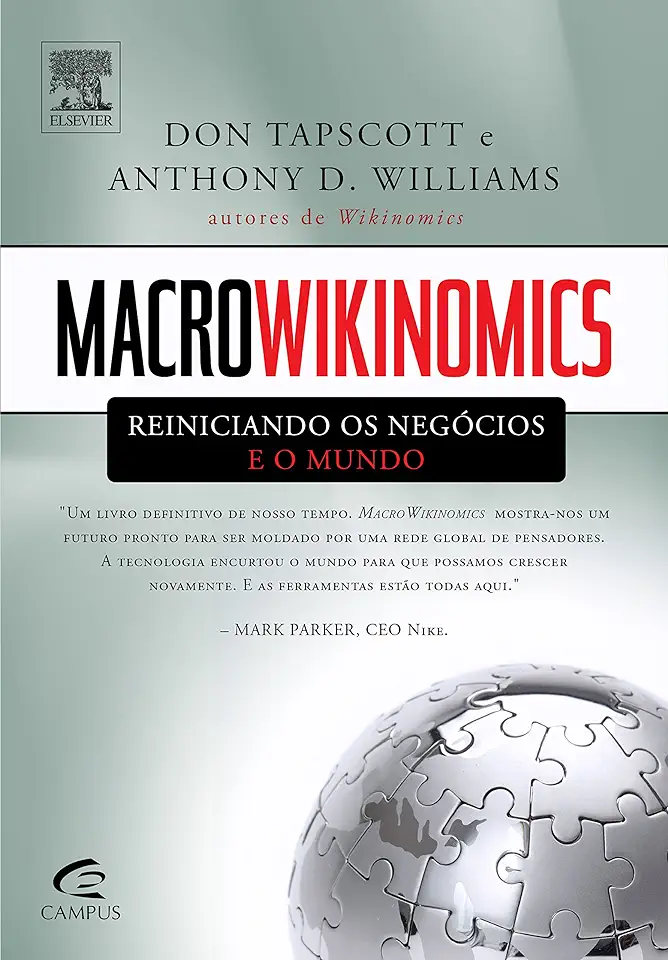
Macrowikinomics - Don Tapscott
Macrowikinomics: Redefining the Economic Logic of the Digital Economy
In the groundbreaking book Macrowikinomics, Don Tapscott argues that the digital revolution is fundamentally changing the way the global economy works. He introduces the concept of "mass collaboration" - the idea that large numbers of people can work together to create value in ways that were previously impossible.
Tapscott draws on a wide range of examples to illustrate the power of mass collaboration. He shows how Wikipedia has created a vast encyclopedia that rivals traditional print encyclopedias, how Linux has become a major operating system that competes with Microsoft Windows, and how YouTube has revolutionized the way people share and watch videos.
These are just a few examples of how mass collaboration is changing the world. Tapscott argues that this trend is only going to continue, and that it will have a profound impact on the way we live and work.
The New Economic Logic of Mass Collaboration
The traditional economic model is based on the idea of scarcity. This model assumes that there is a limited amount of resources available, and that competition for these resources drives economic growth.
However, the digital revolution has created a new economic logic based on abundance. This new model is based on the idea that there is an unlimited amount of information and knowledge available, and that the more people who share this information, the more value it creates.
Mass collaboration is a key driver of this new economic logic. When large numbers of people work together to create value, they can achieve things that would be impossible for any single individual or organization.
The Implications of Macrowikinomics for Business and Society
The rise of mass collaboration has profound implications for business and society.
For businesses, mass collaboration offers a new way to create value and compete in the global economy. By tapping into the collective intelligence of their customers, employees, and partners, businesses can innovate faster, develop new products and services, and reach new markets.
For society, mass collaboration offers a new way to solve complex problems and build a more sustainable future. By working together, people can address challenges such as climate change, poverty, and disease.
Conclusion
Macrowikinomics is a must-read for anyone who wants to understand the future of the global economy. Tapscott's insights into the power of mass collaboration are essential for businesses and individuals alike.
If you are interested in learning more about the digital revolution and its impact on the economy, I highly recommend reading Macrowikinomics. You will not be disappointed.